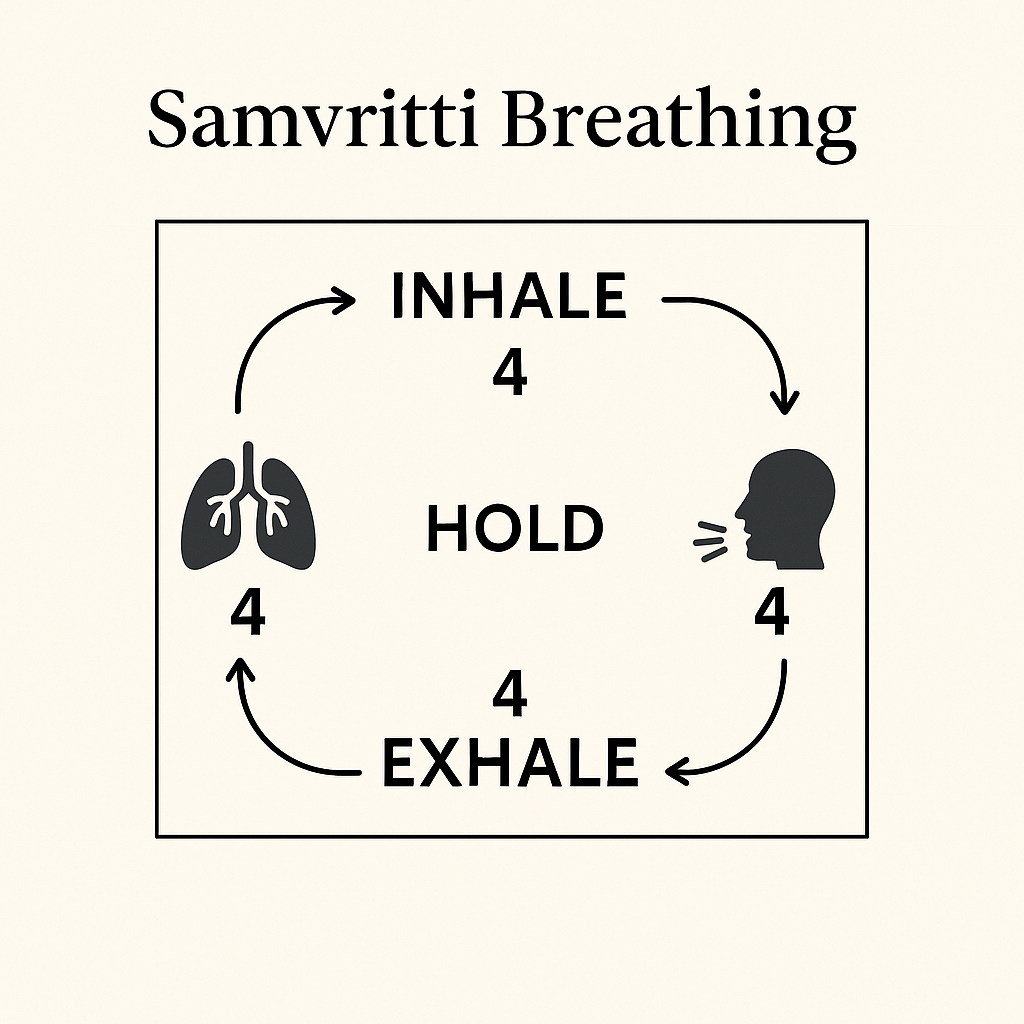Introduction: A Wandering Mind Meets the Breath
I have a mind that wanders. It runs a hundred miles an hour all day, every day. Despite practicing yoga for over 25 years, I’ve always struggled with the breath—learning to control it, truly connect with it, and use it to calm my mind or support my movement. I knew it was a cornerstone of yoga, yet it remained out of reach.
Some of this was due to a lack of discipline. Some of it was simply not knowing how. I was keenly aware of my shortcoming in this aspect of yoga, but I brushed it off—maybe even avoided it. It wasn’t until much later, during my teacher training, that I began to face it more honestly. I share more about that part of my journey on my About page.
My Turning Point: Yoga Teacher Training
During my yoga teacher training, I was introduced to Samvritti Breathing—a type of even-count breathwork that helps calm the mind and body. It’s something many of us do without even realizing it, and it’s especially helpful during meditation.
Although the thought of me meditating made me chuckle— and a little nervous too— I went into my yoga training with two clear goals:
- First, to successfully complete the training
- And second, learn to better control my breath during my practice
During that time, I was also introduced to Yoga Journal, which quickly became a trusted resource for learning and inspiration. I now subscribe to their newsletter and follow them on Instagram for practical tips and insight. If you’d like a deeper look into Samvritti, their article How to Practice Sama Vritti Pranayama (Box Breathing) is a great place to start.
Finding Stillness Through Samvritti
Although I had set those goals for myself, what I didn’t anticipate was going to a much deeper place. Through meditation, I discovered the quiet stillness of a calm mind and body. For me, that had always seemed like an impossible—and honestly, somewhat unnecessary—concept—something to avoid.
However, in that quiet stillness, here is what I discovered:
- Posture: Finding a comfortable, grounded position is key.
- Focus: Observe the breath without judgment.
- Count: If it helps, use a steady count to guide your breathing
- Return: When your mind wanders, gently guide it back to your breath.
That experience opened my eyes to something I hadn’t expected. There was something about the quiet stillness of simply sitting and focusing on my breath that stirred deep emotions in me—and, quite frankly, brought a tear to my eye. I’m not entirely sure why, but perhaps it was my body, mind, and soul thanking me for finally allowing just a few moments of quiet solitude before the craziness of life resumed.

Why Samvritti Breathing Matters
Samvritti Breathing is becoming an integral part of my yoga journey and daily life. It’s teaching me how just a few deep, even breaths can create a profound sense of calm and connection amidst the chaos. Now, as I continue to grow in my practice, I’m beginning to explore other pranayama techniques—like Ujjayi (ocean breath) and Nadi Shodhana (alternate nostril breathing)—each offering its own rhythm, challenge, and insight. I don’t know exactly where this breathwork journey will lead, but I’m learning to stay curious, open, and focused on my breath.
If this post helped you slow down or reconnect with your breath, and you’d like to support my writing, you can buy me a tea. Thank you for being here. 💛
